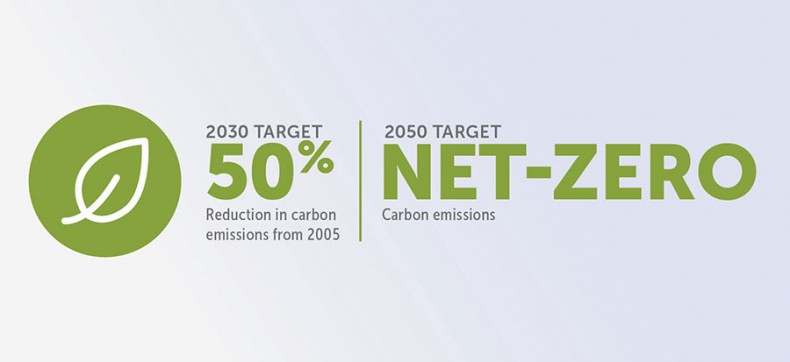Q&A: Sustainability & Electric Co-ops
Common questions about sustainable power

To North Carolina’s electric cooperatives, sustainability means delivering reliable, affordable, low-carbon electricity over a grid that is more efficient, resilient and secure. Electric co-ops are utilizing new and existing resources to reduce our already low-carbon portfolio and work toward two sustainability goals. Here are some common questions about sustainable power.
Q: What is being done to reach these goals?
A: The first step in achieving these goals is to continue utilizing carbon-free nuclear power, the largest source of generation for North Carolina’s electric cooperatives. NC co-ops invested in nuclear power in the 1980s, and it will continue to play an important role in the years ahead. Cooperatives are also adding more renewable energy, along with natural gas generation, which can be switched on quickly when needed (such as when renewable sources aren’t available). And now, the use of sophisticated technology is allowing co-ops to coordinate resources across the grid, making it more efficient and resilient, and providing even more reliable service to members. New energy solutions, like battery storage, microgrids and advanced generation resources still in development, will help co-ops fully achieve these goals.
Q: Why is sustainability important?
A: Member needs and expectations form the bedrock of all future planning for electric co-ops, and North Carolinians are telling their co-ops they want reliable electricity, first and foremost, but they also want it to be sustainable and affordable (see Affordability: The Key to a Sustainable Future for more about the importance of affordability). Electric co-ops are working together to chart a thoughtful path forward, engaging members to better manage activity on the grid while introducing new technologies to generate, distribute and use energy more efficiently.
Q: What does net-zero mean?
A: “Net-zero” refers to a balance between the amount of carbon that is both produced and removed from the atmosphere. A diverse grid using a variety of generation sources, including natural gas, is key to ensuring reliability while keeping power affordable. If the amount of carbon emissions from power generation can be offset by removing emissions elsewhere — increasing forest land, for example — “net-zero” emissions can be achieved.
A Brighter Future
Our long-term plans are guided by each electric co-op’s local roots and focus on delivering value to cooperative members and their communities. Learn more about the sustainability and efficiency goals of North Carolina's electric cooperatives.
-
Share this story:

